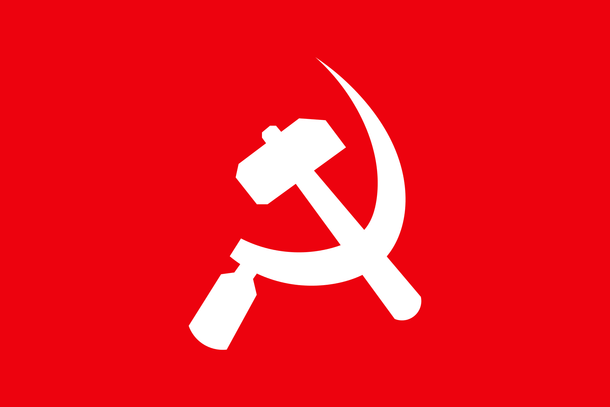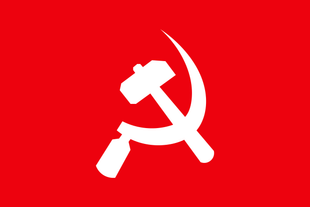Politics
Lessons On May 1 - We Must Move Towards An Indic Business Environment
Surajit Dasgupta
May 01, 2016, 09:09 AM | Updated 09:08 AM IST
Save & read from anywhere!
Bookmark stories for easy access on any device or the Swarajya app.


We see pain on either side. Or, perhaps, there are more than two sides to it. First, the pain of not being treated with dignity by the employer. Second, the pain of not being able to do business due to strike-happy trade unions. Third, the pain of a citizen looking at the sorry state of affairs.
This piece on the International Workers’ Day will not take the reader through monotonous data and their interpretation. It will rather deal with sights and experiences everybody can relate to.
At the high school level, you are told the history of Industrial Revolution with a socialist perspective. It is immediately followed by a definition of capitalism that you would begin to suspect as erroneous years later when you have stepped into the professional world of post-1991 India (rather than 18th or 19th century Europe). When a student, you would visualize a businessman as a Shylock, if not you are yourself a son or daughter of one. Beyond the books, the real-life character is unable to extract a good pound of flesh because of a factor the school and university books did not tell you about — competition, which was near-absent when “capitalism” was historically defined but whose absence is unthinkable in this era.
While we normally oppose monopolies and cartels for the sake of consumers because of this tendency betrayed by businessmen by and large, on May Day we must see it from a worker’s perspective as well.
You are paid a salary of Rs 15,000 in Kolkata to be, say, a marketing executive. That same job fetches you Rs 35,000 in Delhi. Your boss in Kolkata asks you to fetch vegetables and fish for his kitchen, paste posters of the company on walls and buses — objecting to which would cost you your job. The boss in Delhi wouldn’t conceive such acts of exploitation even in his wildest dreams. The difference is competition.
You got that job in Kolkata after suffering years of condemnation as a bekar chhele (unemployed youth). The company has few competitors. Losing this job would mean not getting another for years together. Your employer in Delhi faces more competition than what could give him nights of peaceful sleep. Besides, a less benign Delhiite employee that you are can greet the boss with a common expletive other than daring him for a bout of fisticuffs.
However, those employed in the corporate sector would be surprised to know, this competition does not always ensure the “labourer” a good deal. In the booming services — credit cards, insurance, holiday packages, money multiplying schemes of NBFCs, home and car loans, etc — you are given stiff monthly targets and a gestation period of no more than a month. It is not just a commission that you do not get on failing to achieve your target; they also deny you your basic salary from the second month onwards.
You think the local labour inspector can come to your rescue? Approach his office and you will be told everything from your visiting card to your appointment letter is farzi (fake). “Anybody can get such stuff printed on sheets of paper at Nehru Place,” you will be told in that sarkari office.
It is no better in Mumbai. “Mai nahi dega to kya kar lega tu?” (What can you do if I deny you your salary?) is all that it will take your employer one fine morning to seize all dignity out of your life.
We, public policy commentators, must deal with this situation because, as even the Prime Minister and Finance Minister of the country say, this service sector generates jobs in much larger numbers than the corporate biggies.
It is bliss working (rather not working) in that communist El Dorado only if you are in the manufacturing sector. You go on strike not because you have been offered a raw deal, but because Trade Union Leader A, whose acolyte you are, thinks that the rival Trade Union Leader B has sold out labour interests to the management!
And when finally your salary stops coming in, while you are finding it difficult to make the ends meet indeed, you are not as ashamed of being a burden on your septuagenarian father, unlike what you would be in a capitalist society. Of course, you have an added incentive in Bengal of India and France of Europe: you turn poetic. Philosophy tells you how great a character you are when you are broke!
Don’t be surprised again when told that we imported this rot as much as we imported all isms, laws and forms of governance from the West. What is perhaps more ironical is the fact that the former Union of Soviet Socialist Republics was not the origin of this paradigm. It was the United States. The communists borrowed not only the red flag from an incident of labour unrest in Chicago in 1886, but also the International Workers’ Day from either mechanist Matthew McGuire or American Federation of Labour’s Peter McGuire who proposed this special day — May Day has traditionally been a day of a spring festival in Europe — for workers in 1882.
In the ultimate analysis of history, the symbolism descended from a downright negative chapter. The red flag had precedents dating back to the Paris Commune of 1871, the French Revolution’s chapter of 1848, the Mexican siege in 1836, South Wales of 1831, the British sailor mutiny in 1797, the Reign of Terror in France in the period 1793-94, Martial Law in France in 1791, a popular revolt in the same nation in 1358 and finally streamers called Baucans, signifying a fight to death, in the 13th century.
The concept might have turned milder with age — from genocide to anarchy to intellectual justification of chaos — but communist rabble rousing could not build a positive narrative from what began as gore. The past of ‘capitalists’, as defined conveniently by socialists to project themselves better in comparison, was as awful. If the employees were inspired by the idea of justice from battles on sea, employers had begun violence in the form of brazen extortion much earlier — arguably due to the Christian and Islamic beliefs that made the business of money-lending a taboo, which created a Jewish monopoly in the business.
Building a constitutional framework to handle such primitive instincts of human beings on either side will forever remain a challenge for the nations that shaped this mess in the first place. If the labour situation in India looks worse at times, it is because we are inertial towards changing what even the erstwhile colonial masters have changed in their respective countries. For one, it is because our communists are brainchildren of those foreign societies, now caught in a time warp more sinister than the structure that collapsed following Mikhail Gorbachev’s glasnost and perestroika.
For a flourishing business environment and safeguarded consumer as well as labour interests, we need to turn inwards and go back to the Kautilyan model of minimum government and maximum governance in trade. There, while minimalist costs kept prices low, dharma not only forbade but also prohibited exploitation. Yes, a law to protect the worker must not be inhibitive for the investing industrialist; it should rather be an encouragement to keep the labour force happy. That is ensured more by an environment than the statutes. An adequate dose of FDI in the right fields — in this case, job-generating fields — will help.
Those who have followed Narendra Modi since his Gujarat years would know that the first question he would ask a potential investor was how many jobs the latter could create. Modi’s village Vadnagar is happy because the pharmaceutical and lifestyle products company that he allowed to be set up there employed half the working population. Across that province, Gujaratis are a happy people because of the local culture wherein a businessman brings his villagefolk to his factory and nurtures them in a way that they turn into future employers themselves.
They are such essentially Indian mores involving the ruler and the ruled employers and employees alike that will give India ‘jobful’ growth — which will make consumers happy, too. As much as we lack Gujarati-like businessmen and workers in the rest of India, we are missing that Indian/Gujarati Modi in his bureaucracy-dependent models ranging from Make in India to Stand-Up India and a parochial economic philosophy of his mentor, the RSS, which was not a part of its thinking since its inception, but which became its essence since Dattopant Thengadi’s epoch. If a bad boss and a recalcitrant worker are videshi contributions, swadeshi is not Indian either. Read Arthashastra this 1st of May and study Gujarati society for a whole year beginning today.





